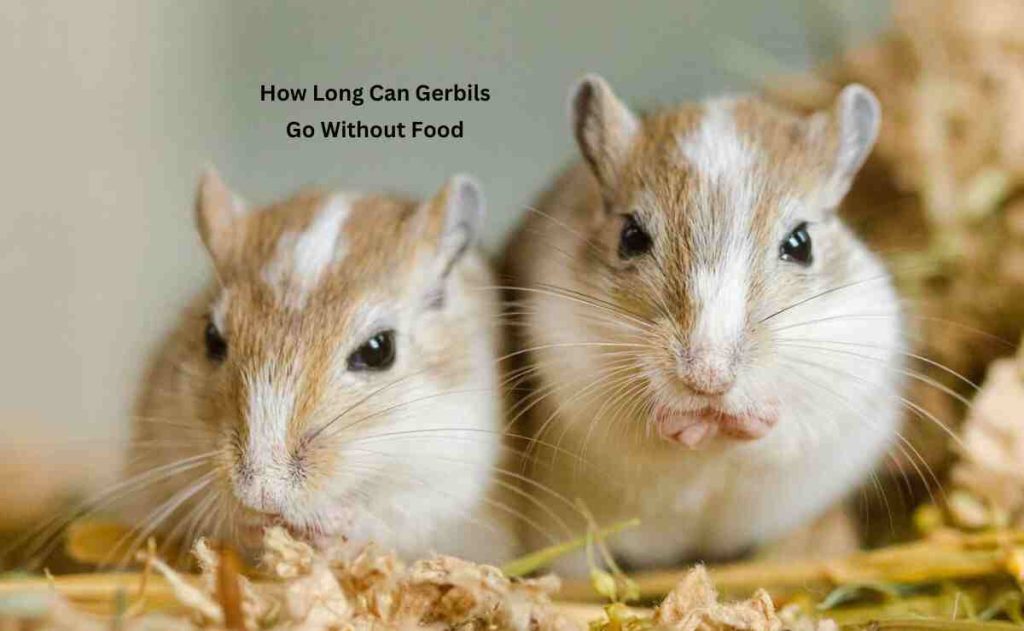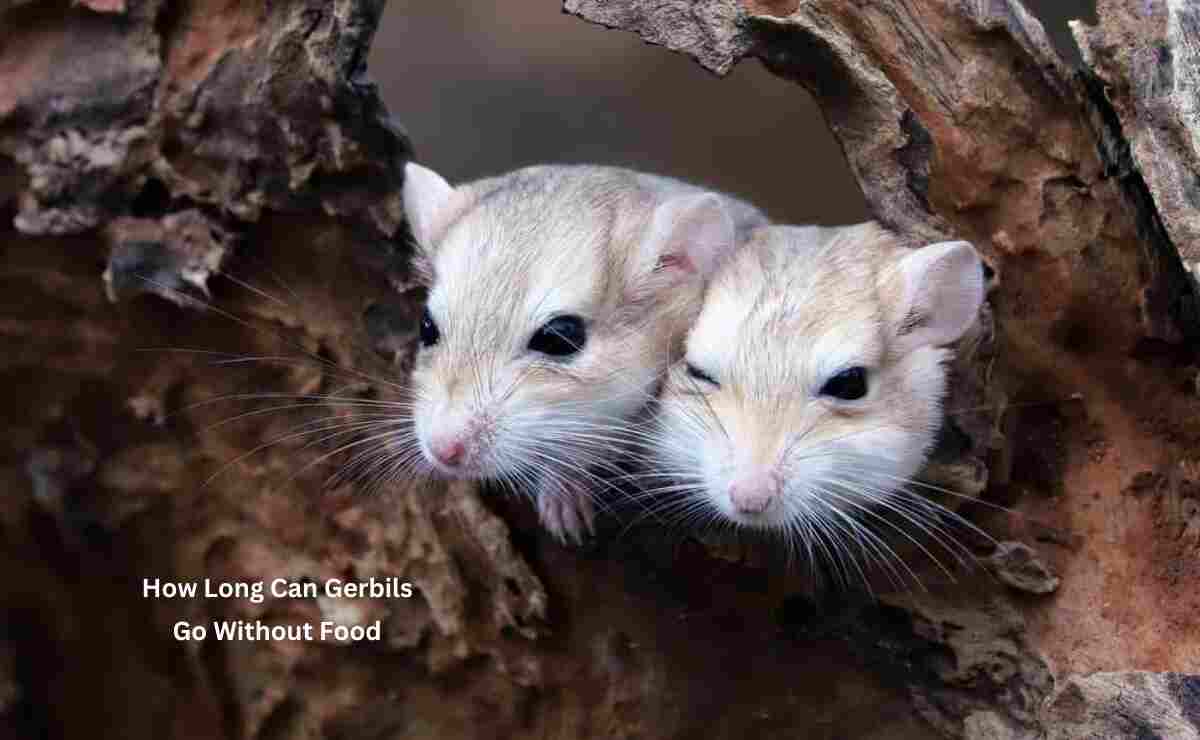Gerbils, those adorable small rodents known for their playful antics and fluffy tails, have captured the hearts of many pet owners around the world. As responsible caretakers, we strive to provide them with a comfortable habitat, a healthy diet, and plenty of love and attention. However, there may be occasions when we need to leave our furry friends alone for extended periods.
During such times, it is natural to wonder how long can gerbils go without food. In this article, we will delve into this question and explore the factors that affect their ability to survive without sustenance. Understanding these factors will help us ensure the well-being of our beloved gerbils during any unavoidable absence from home.
How Long Can Gerbils Go Without Food?

Gerbils are small rodents that have a high metabolism and require regular food intake to maintain their energy levels. While they can survive for short periods without food, it is not recommended to leave them without food for more than 24-48 hours.
Gerbils have very small stomachs and need to eat frequently throughout the day. They typically consume a diet of seeds, grains, fruits, and vegetables. Without food, gerbils can become weak and lethargic, leading to potential health issues such as malnutrition or dehydration.
It is important to ensure that gerbils always have access to fresh food and water. If you need to be away for an extended period, it is best to arrange for someone to care for your gerbil or provide them with enough food before you leave. Proper nutrition is crucial for their overall well-being and longevity.
How Often Do Gerbils Need to Be Fed?
Gerbils should be fed daily to ensure they receive the proper nutrition and maintain a healthy weight. It is recommended to provide them with a small amount of fresh food each day, such as fruits like banana, vegetables, and grains.
Moreover, gerbils require a consistent supply of high-quality commercial gerbil pellets that are specifically formulated to meet their dietary needs.
It is important not to overfeed gerbils as they have a tendency to hoard food in their nests. Overfeeding can lead to obesity and other health issues. On the other hand, underfeeding can result in malnutrition and even starvation.
Gerbils should be fed daily with a combination of fresh foods and commercial pellets to ensure they receive the necessary nutrients for their well-being. It is essential to strike a balance between providing enough food without overfeeding or underfeeding them.
Regular monitoring of their weight and observing their behavior can help determine if any adjustments need to be made in their diet.
Causes of Gerbil Low Appetite
There are several factors that can contribute to a lack of appetite and thirst in gerbils. One common reason is stress. Gerbils are sensitive creatures, and any changes in their environment or routine can lead to stress, which in turn can affect their eating and drinking habits. It’s important to ensure that your gerbil’s habitat is calm and comfortable, with minimal noise and disturbances.
Another possible cause could be an underlying health issue. Gerbils can suffer from various illnesses or infections, such as dental problems or gastrointestinal issues, which may result in a loss of appetite and thirst. If you notice any other symptoms like weight loss, lethargy, or diarrhea, it’s essential to consult a veterinarian who specializes in small animals for a proper diagnosis and treatment.
In some cases, lack of appetite and thirst may simply be due to old age. As gerbils get older, their metabolism slows down, leading to reduced hunger and thirst. However, it’s still crucial to monitor their food and water intake closely to ensure they’re getting the necessary nutrients for their well-being.
Providing a varied diet with fresh fruits and vegetables alongside their regular food can help entice them to eat more. Additionally, offering wet foods or adding water supplements to their diet can also help increase hydration levels if needed.
How Long Can You Leave Your Gerbil Alone?
Gerbils are fairly independent creatures and can be left alone for short periods of time without any issues. However, it is important to ensure that they have access to food, water, and a clean living environment during your absence.
Generally, gerbils can go without food or water for up to 24 hours, but it is recommended to provide them with enough supplies to last at least a couple of days.
If you plan on being away for longer periods, such as a weekend trip or vacation, it is advisable to arrange for someone to check on your gerbils and provide them with fresh supplies.
Alternatively, you can set up automatic feeders and water dispensers specifically designed for small pets like gerbils. These devices can help ensure that your furry friends are well taken care of even in your absence.
However, it’s important to note that while gerbils can handle short periods alone, they are social animals and thrive best when they have companionship. If possible, it is recommended to keep at least two gerbils together so they can interact and keep each other company when you’re not around.
Conclusion
Gerbils are small rodents that can survive for longer periods without food compared to other animals. They are equipped with efficient metabolisms and have the ability to store food in their cheek pouches.
By understanding their dietary needs and providing proper care, we can ensure the well-being and longevity of our furry friends.
Related Posts
